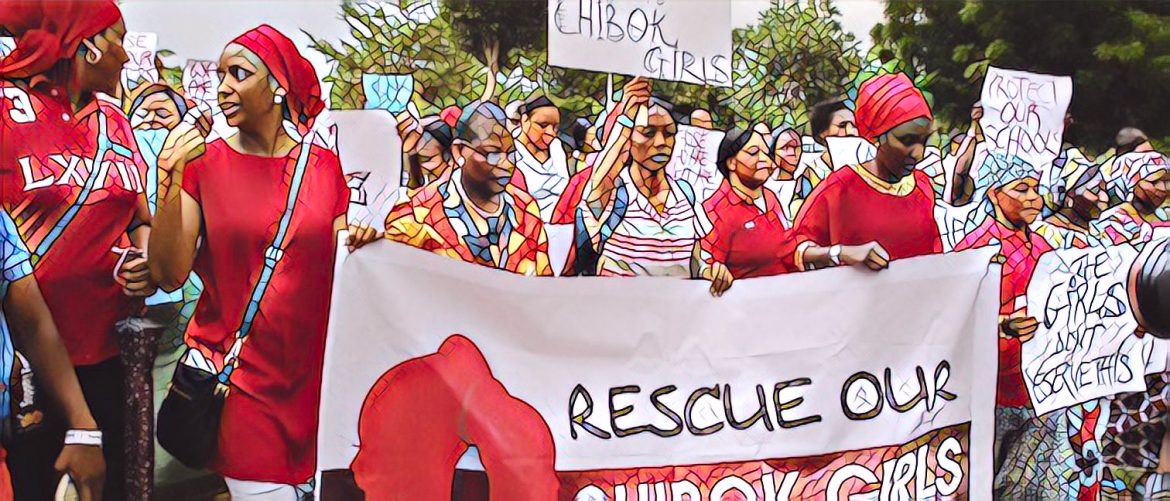Nigeria, a land of rich culture and enthusiastic citizens, has witnessed the ascent of women in nonviolent protests. Once overlooked, these women are now at the forefront, championing justice with fierce determination. The ‘Bring Back Our Girls’ movement is a shining example of this shift.
In 2014, a chilling incident shook the globe: 276 schoolgirls were kidnapped by Boko Haram in Chibok, Northeastern Nigeria. As each day passed, worldwide anxiety escalated. Amid this, Nigerian women emerged as beacons of hope, drawing global eyes to this heartbreaking event.
Dr. Oby Ezekwesili, a former Education Minister and campaign co-founder, stood out. “We refuse to forget. We refuse to be silenced,” became her anthem, resonating in Nigeria and beyond.
But it wasn’t just the prominent figures leading the charge. Everyday women—mothers, activists, students—joined the cause. The streets echoed with their marches, vigils highlighted their persistence, and social media spread their message. Opting for peace over aggression, their methods received vast global backing.
Amina Yusuf, a stalwart in these peaceful protests, highlights the campaign’s dual origins of adversity and hope. “Nigerian women have endured much,” she reflected, “but in unity, we found strength. ‘Bring Back Our Girls’ speaks for every silenced woman and girl.”
This movement didn’t just make international waves; it catalyzed local transformation. Communities, once fragmented by faith and ethnicity, found common ground. Women-led initiatives began emphasizing the value of female education, questioning longstanding societal beliefs.
Historical experts, like University of Lagos’s Professor Adeola Faleye, have lauded the campaign. She speaks of these women not as mere victims, but dynamic changemakers, signifying that true strength lies in resolve, not just might.
Though many Chibok girls are now back home, the movement’s essence endures. It has paved the way for additional women-driven nonviolent protests in Nigeria, confronting issues from governance to women’s rights. These campaigns highlight that impactful change can stem from unity, not just force.
As Nigeria’s path unfolds, filled with hurdles, the resolute spirit of its women serves as an inspiring guidepost. Representing not only the future but also the vibrant present, these women are crafting a hopeful tomorrow for Nigeria.


